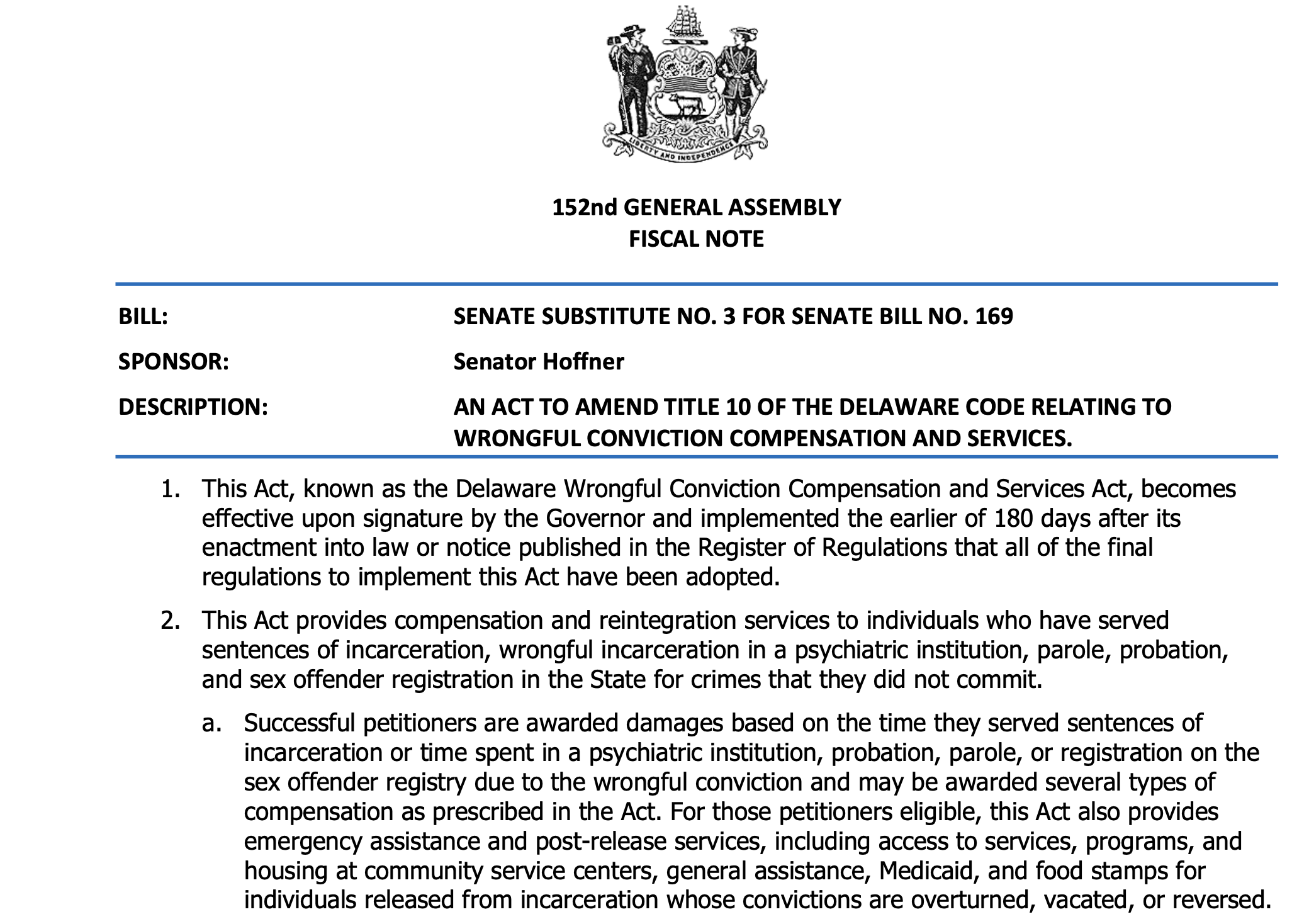Criminal Justice Reforms in Delaware
-
![]()
DNA Testing
Defendants convicted of crimes in Delaware may apply for DNA testing using newly developed technologies (including Y-STR and mitochondrial).
Effective: 2000
-
![]()
Eyewitness Identification
In 2018, the Delaware Police Chiefs’ Council and the Delaware Attorney General’s Office released a model policy for eyewitness identification procedures. The model policy includes: blind administration, proper use of fillers, proper instructions to the witness, and witness confidence statements. The policy also includes procedures for show up identifications.
Adopted: 2018
-
![]()
Recording of Interrogations
In 2021, Delaware passed a law that requires the recording of all custodial interrogations – in their entirety – of juveniles and adults that are conducted at places of detention.
“Places of detention”, as defined, include, but are not limited to, police stations, police vehicles, and, in the case of juveniles, schools. The law provides for specified exceptions to the recording requirement, however the prosecution has the burden to prove that an exception applies by a preponderance of the evidence.
In the event that an exception does not apply, the court determines the admissibility and voluntariness of the statement and ultimately whether to allow it as evidence. In the case that the court allows the unrecorded statement, a jury instruction will be provided regarding the failure to comply with the requirement to record interrogations.
Effective: 2021
-
![SB169: An Act to Amend Title 10 of the Delaware Code Relating to Wrongful Conviction Compensation and Services]()
SB169: An Act to Amend Title 10 of the Delaware Code Relating to Wrongful Conviction Compensation and Services
The Act provides compensation and reintegration services to individuals who have served sentences of incarceration, wrongful incarceration in a psychiatric institution, parole, probation, and sex offender registration in the State for crimes that they did not commit.
Effective: 2025 (Signed into Law September 2024)




